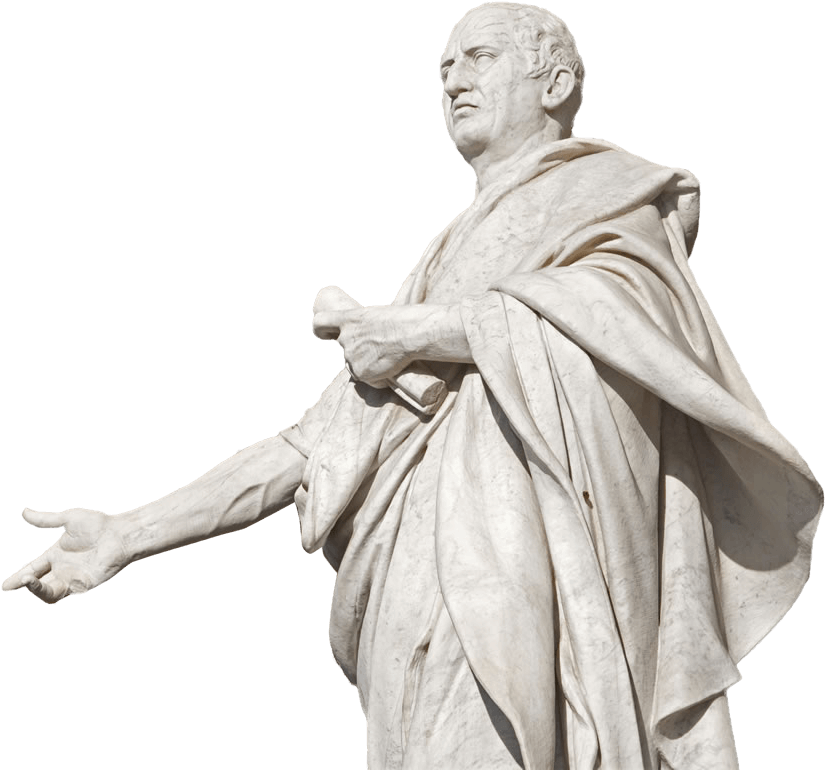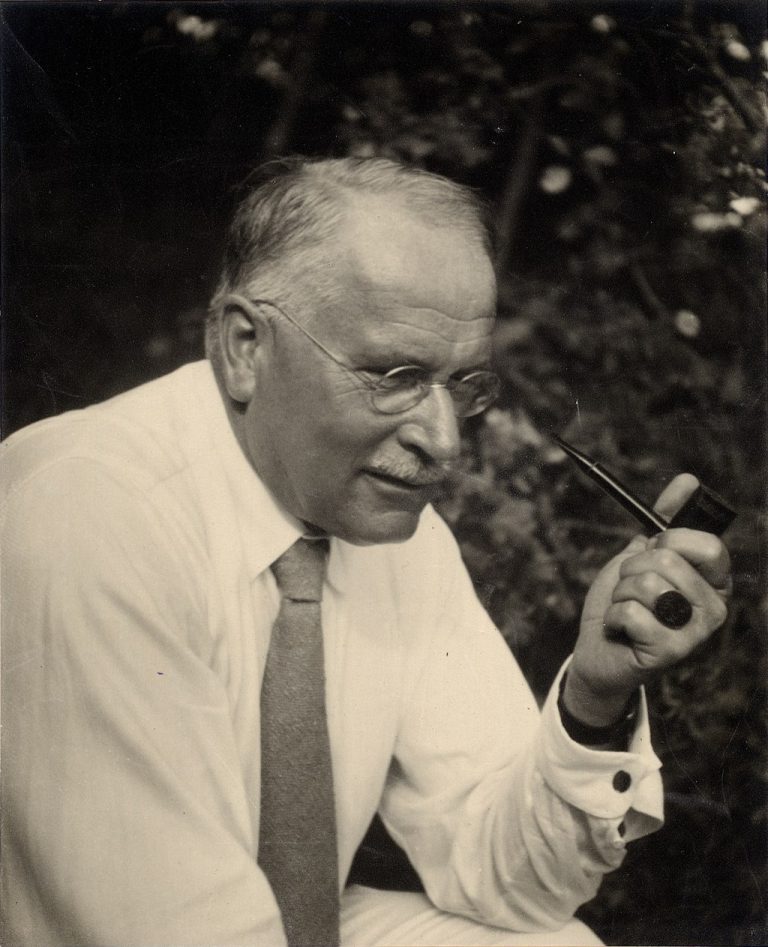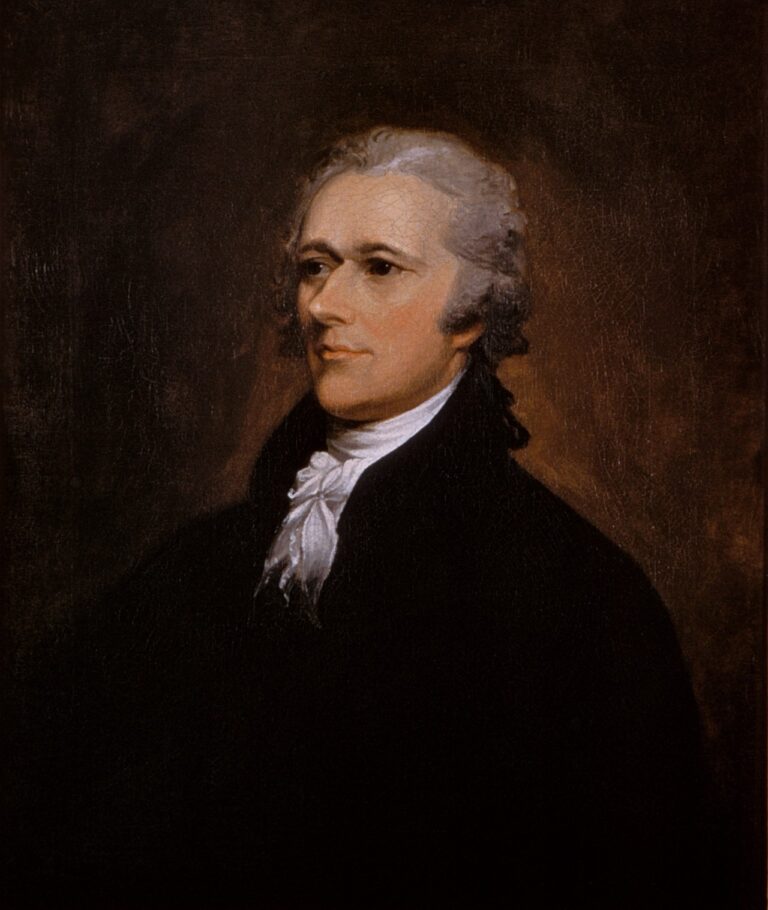
Marcus Tullius Cicero, was a man of exceptional talent, intelligence and integrity, who I like to call Rome’s most learned man. A polymath skilled in a range of areas such as oratory, statesmanship, law, writing and of course, philosophy. Much of his writings, including his works, have survived and they are quite voluminous too as our learned Roman was a prolific writer.
Cicero was not born into the Roman nobility, but he belonged to the equestrian order, which was a social class just below the nobility in ancient Rome. The equestrians were wealthy landowning citizens who were eligible to serve in government and military positions. Cicero achieved much being a self-made man and worked his way up the political ranks, starting as a lawyer and eventually becoming a consul in 63 BC, the highest elected official in the Roman Republic. His success as a politician and orator helped him to gain significant wealth and prestige, which allowed him to associate with the Roman nobility.
Cicero is known for having played a key role in uncovering and foiling a conspiracy known as the Catiline conspiracy, which was led by Lucius Sergius Catilina (Catiline) in 63 BC. Catiline, a nobleman who was deeply in debt and had previously lost elections, had planned to overthrow the Roman Republic and install himself as dictator. Cicero, who was a consul at the time, became aware of the plot and used his position to expose it in a series of speeches known as the “Catilinarian Orations.” He also convinced the Roman Senate to pass a law allowing the execution of conspirators without trial, and several of Catiline’s followers were put to death. Cicero’s actions in uncovering and foiling the conspiracy were widely praised and cemented his reputation as a statesman and defender of the Roman Republic.
He was known for his pragmatic approach to politics and his ability to navigate the complex and ever-changing political landscape of the Roman Republic. History, as well as his contemporaries, remembered him for his strong commitment to the republican form of government, which emphasized the power of the Roman Senate and the rights of the Roman people.
Thanks to the close connections between the Roman world and the Greek world, Cicero had access to a wide variety of philosophical ideas. Between the two Mediterranean cultures there was a long history of cultural exchange and philosophical ideas—albeit most of the latter was provided by Greece! Cicero received a traditional Roman education and was trained in the liberal arts, including rhetoric, grammar, and philosophy. He was particularly interested in Greek philosophy, and his works show a wide-ranging familiarity with the works of the major Greek philosophers, including Plato and Aristotle. He was known for his ability to synthesize different philosophical ideas and his ability to apply them to practical political and ethical issues. Cicero’s own philosophical views were heavily influenced by Stoicism, which emphasizes the development of self-control and resilience in the face of adversity, which he also wrote extensively on it. He also studied and wrote on Epicureanism and Academica. Cicero’s philosophical works, which include treatises, letters, and speeches, have been highly influential in the development of Western political philosophy and have played an important role in shaping the intellectual and cultural heritage of the Western world.
Being a successful lawyer and politician as he was, this allowed Cicero to acquire significant property. He owned several villas throughout his life. Some of his most famous villas include:
- The Villa of Cicero at Tusculum: a country house located in the Alban Hills near Rome, which Cicero acquired in 63 BC and where he wrote many of his philosophical works.
- The Villa at Antium: a seaside villa located in the town of Antium (modern-day Anzio) which Cicero acquired in 51 BC. He used it as a retreat and a place to host guests.
- The Villa at Formiae: a villa located in the town of Formiae, on the coast of Latium. Cicero inherited this villa from his brother in 51 BC. He used it as a retreat and a place to host guests.
Cicero’s villas were not only places of leisure and relaxation, but also served as centers of literary and intellectual activity. He would host scholars, philosophers and friends, and used these villas to work on his speeches, letters and philosophical works.
Among the most notable qualities I admire about Cicero was his knack for independent thinking and political flexibility. He was not a rigid ideologue, like some campaigning Roman general, and often adapted his political views to suit the changing circumstances of the dynamic world of Roman politics.
Here’s some notable excerpts I found while reading Cicero:
“When he inquired [Cicero], namely, of the god at Delphi how he could become most illustrious, the Pythian priestess enjoined upon him to make his own nature, and not the opinion of the multitude, his guide in life.” – Plutarch
“Nor is there any difference between us and those people who fancy that they know something, except that they do not doubt at all that those doctrines which they uphold are the truth, while we account many things as probable which we can adopt as our belief, but can hardly positively affirm”—Academica
Cicero mentioned that there are men who cling on to their predetermined opinions for the sake of consistency. Cicero contrasted these to himself: “We, on the other hand, who pursue only probabilities, and who cannot go beyond that which seem really likely, can confute others without obstinacy and are prepared to be confuted ourselves without resentment.”
“most people prefer being in error, and defending with the utmost pugnacity that opinion which they have taken a fancy to, to inquiring without any obstinacy what is said with the greatest consistency”—Academica
“we are more free and unfettered than they are, because our power of judging is unimpeached, and because we are not compelled by any necessity to defend theories which are laid upon as injunctions, and if I may say so, as commands. For in the first place, those of the other schools have been bound hand and foot before they were able to judge what was best;” —Academica
“Men who have degraded all their powers of thought to an object (sensual pleasures) so mean and contemptible can of course raise their eyes to nothing lofty, to nothing grand and divine”— On Friendship
Now that is an interesting observation, think about it, if we are to only pursue sensual pleasures and forever be fixated solely on them, then we will be barred from self-improvement both spiritual and secular and from the higher reflections of philosophy because we will not have the time, motivation and most importantly, mentality go for them.
In the winter years of his life, disaster struck. Tullia, Cicero’s daughter, had died during childbirth. His loss of his beloved daughter afflicted Cicero to such a degree that he retired from public duties. But rather than shedding tears in a puddle of his own urine, Cicero sought to do something about it and manage his grief the best way possible—by turning to philosophy.
Here’s an example during that gloomy time when Cicero touches on Chrysippus’ method to which he approved of but thought it difficult to work on a person already in a state of grief:
“As to Chrysippus method, it is certainly founded in truth; but it is difficult to apply it in time of distress. It is a work of no small difficulty to persuade a person in affliction that he grieves merely because he thinks it right so to do”—On grief, Tusculan Disputations
Of course Cicero here is indirectly talking about himself, his grief had already set in and so the damage could not be mitigated beforehand.
A few years later after Tullia’s death, Cicero was executed in 43 BC on the orders of the Roman dictator Julius Caesar’s allies, Mark Antony and Octavian, after a period of political turmoil and civil war. Cicero had been a vocal opponent of Julius Caesar, and after Caesar’s assassination in 44 BC, Cicero supported the conspirators who had orchestrated the killing.
Cicero was captured and executed without trial, his head and hands were cut off and displayed in the Roman Forum as a warning to others who might oppose the new regime. His death was a major loss for the Roman Republic, and it marked the end of an era in Roman politics and culture.
Cicero was a true titan of Roman history, a true Roman patriot who dedicated his life to the service of his country and its people and man whose contributions to the Republic and to Western civilization are immeasurable. He’s always remembered in the history books as one of Rome’s greatest statesmen, orators and philosophers, but really he WAS Rome’s most learned man.
A fragment from Cornelius Nepos, biographer of the Augustan age, declared that at the death of Cicero, men had to doubt whether it was literature or the Republic that had lost the most.

